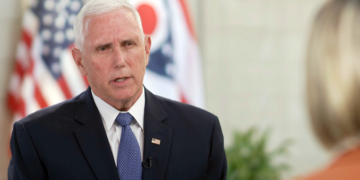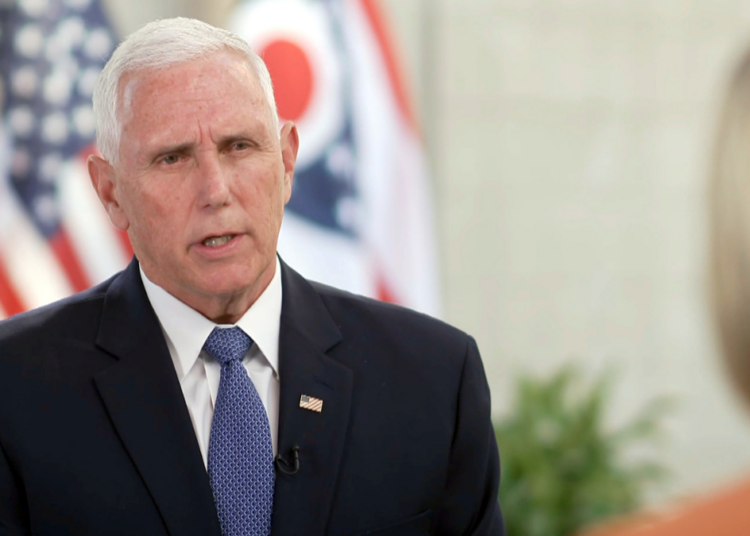Former Vice President Mike Pence has voiced his support for individual autonomy, specifically for adults seeking gender transition procedures, aligning him unexpectedly with left-leaning organizations such as Planned Parenthood and the Human Rights Campaign. In a recent episode of The Dr. Jordan B. Peterson Podcast, Pence expressed a libertarian perspective, “I may not agree with decisions you make, but we’ll love you, and love our neighbor as ourselves as my faith requires, right? But live and let live.”
Nevertheless, Pence stressed the crucial difference when it comes to underage individuals, staunchly opposing gender transition treatments for children. He drew a parallel to age restrictions on driving and getting tattoos, emphasizing the importance of shielding children from life-altering choices they may not be mature enough to handle. The former Vice President has strongly advocated for measures to prohibit gender transition treatments for those under 18, both in his home state of Indiana and nationwide.
Pence then transitioned to the topic of school choice, promoting parents’ rights to allocate their tax dollars toward the best educational options for their children. His firm stance on this issue underscores his commitment to safeguarding parental rights and enabling families to opt out of public school systems that may impose ideologies contrary to their beliefs.
However, it’s crucial to note that there’s a growing number of adults regretting their decision to transition. Cases like Helena Kerschner, who began testosterone injections at 18 after a brief consultation with Planned Parenthood, and later regretted the choice, are increasingly common. Social media pressure and lack of comprehensive consultation are emerging as key factors influencing these irreversible decisions, highlighting the need for a more measured and careful approach.
Pence’s track record has been a mixture of firm conservative principles and occasional political concessions. He is known as a staunch defender of the unborn, but has also yielded to political pressure as governor. For instance, he diluted religious freedom protections after intense lobbying from business interest groups. His stance on the landmark Obergefell v. Hodges case, which legalized same-sex marriage, has also been nuanced. While expressing his support for Biblical marriage, he stopped short of saying the ruling should not be codified into law, stating, “We can disagree with Supreme Court decisions, but we can’t disobey them.”




















Discussion about this post